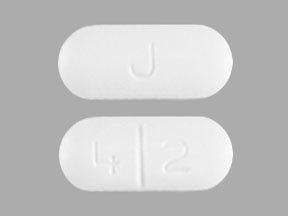Modafinil Disease Interactions
There are 5 disease interactions with modafinil.
CNS stimulants (applies to modafinil) hypertension
Major Potential Hazard, Moderate plausibility.
CNS stimulants increase blood pressure and heart rate; the use of some agents may be contraindicated in patients with severe/uncontrolled hypertension. Caution should be used when administering to patients with preexisting high blood pressure (even mild hypertension) and other cardiovascular conditions. All patients under treatment should be regularly monitored for potential tachycardia and hypertension.
CNS stimulants (applies to modafinil) psychiatric disorders
Major Potential Hazard, Moderate plausibility. Applicable conditions: Psychosis, Depression
The use of CNS stimulants can cause psychotic symptoms, suicidal ideation, and aggression, and can exacerbate symptoms of behavior disturbance and thought disorder; CNS stimulants may induce a manic or mixed episode in patients with bipolar disorder. Psychiatric symptoms have been reported in patients with and without history of psychiatric disorders. All patients (particularly those with psychotic or bipolar disorders) should be monitored closely, especially during treatment initiation and at times of dose changes. Extreme caution should be exercised when CNS stimulants are given to patients with a history of psychosis, depression, mania, or bipolar disorder. Prior to initiating therapy, all patients should be screened for risk factors for developing a manic episode (e.g., comorbid or history of depressive symptoms or family history of suicide, bipolar disease, or depression). If any psychiatric symptoms emerge or are exacerbated, treatment suspension should be considered. Some CNS stimulants are contraindicated in patients with marked agitation or anxiety.
Modafinil (applies to modafinil) cardiovascular
Moderate Potential Hazard, Low plausibility. Applicable conditions: Cardiovascular Disease, Heart Disease, Hypertension, History - Myocardial Infarction, Arrhythmias, Angina Pectoris
Modafinil is not recommended for use in patients with a history of left ventricular hypertrophy or ischemic ECG changes, chest pain, arrhythmia or other clinically significant manifestations of mitral valve prolapse in association with central nervous system stimulant use. Increased monitoring of heart rate and blood pressure is recommended in patients taking modafinil. Caution is advised in patients with known cardiovascular disease and increased monitoring is recommended in patients with a recent history of myocardial infarction or unstable angina.
Modafinil (applies to modafinil) liver dysfunction
Moderate Potential Hazard, Moderate plausibility. Applicable conditions: Liver Disease
Exposure to modafinil is increased in patients with liver dysfunction. In patients with severe liver dysfunction, reduce the dose of modafinil to one-half the dose recommended dose.
Modafinil (applies to modafinil) substance abuse
Moderate Potential Hazard, Moderate plausibility. Applicable conditions: Drug Abuse/Dependence, Alcoholism
Patients with a history of drug and/or stimulant abuse should be closely followed during treatment with modafinil. Observe patients for signs of misuse and abuse. Clinical studies indicate modafinil produces psychoactive and euphoric effects/feelings consistent with other CNS stimulants.
Switch to professional interaction data
Modafinil drug interactions
There are 524 drug interactions with modafinil.
Modafinil alcohol/food interactions
There are 4 alcohol/food interactions with modafinil.
More about modafinil
- modafinil consumer information
- Check interactions
- Compare alternatives
- Pricing & coupons
- Reviews (538)
- Drug images
- Side effects
- Dosage information
- During pregnancy
- Support group
- Drug class: CNS stimulants
- Breastfeeding
- En español
Related treatment guides
Drug Interaction Classification
| Highly clinically significant. Avoid combinations; the risk of the interaction outweighs the benefit. | |
| Moderately clinically significant. Usually avoid combinations; use it only under special circumstances. | |
| Minimally clinically significant. Minimize risk; assess risk and consider an alternative drug, take steps to circumvent the interaction risk and/or institute a monitoring plan. | |
| No interaction information available. |
See also:
Further information
Always consult your healthcare provider to ensure the information displayed on this page applies to your personal circumstances.


